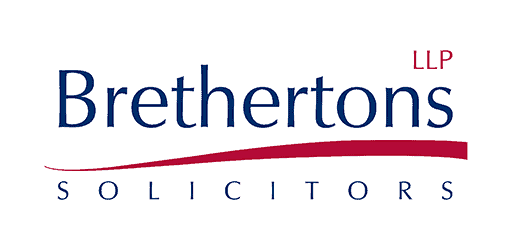Kirsten Taylor, Chartered Legal Executive at Brethertons provides a guide to the range of services provided at your block of flats.
The purpose of this article is to provide you with an overview of some of the common services that are provided as part of general estate management together with some commentary on why these services are important.
Put simplistically the costs of services, maintenance and general management duties are charged to leaseholders who have the benefit of these provisions via service charges. In some circumstances a leaseholder will be subject to a service charge, which will be a proportion of the costs incurred for the whole site. A block charge on the other hand will be charged for costs concerning an individual block, for example, one block may have a lift facility which requires maintenance on a regular basis, it would therefore be unfair for a leaseholder of another block on the same site to incur the costs of maintaining the lift.

Arguably, the most important type of service provided to leaseholders is the requirement to comply with building, fire, and health & safety regulations. This area of site management has undergone a significant amount of scrutiny in the past two years following the tragic events at Grenfell Tower. The regulatory system surrounding in particular high-rise buildings is currently undergoing significant reform as it was deemed by Dame Judith Hackitt to be ‘not fit for purpose’ following her recent Independent Review of Building Regulations and Fire Safety (May 2018). It is likely that as a result of these findings in the future residents will be given an increased level of transparency about the services provided at their block and there will be clear procedures in place for those residents to report problems and comment on the services provided as required.
Other key health and safety estate services include:-
- fire and Health & Safety Risk assessments;
- ensuring any fire fighting facilities provided within the site are maintained such as dry risers and sprinklers facilities;
- smoke control systems are fully operative, maintained and regularly checked; and
- resident awareness, i.e. regular fire safety updates, ensuring residents aren’t breaching their lease covenants in respect of health and safety provisions and further ensuring emergency fire procedures are documented throughout the building.
There are also many other areas of estate regulation that not only assist in ensuring that the freeholder/management company is compliant with its regulatory obligations but also that it is abiding with common lease covenants such as the requirement to keep the communal areas tidy and in good repair and ensuring an individual resident’s right to quiet enjoyment.
The accounting and management of a reserve fund is in itself a further service that is provided whereby a percentage of a leaseholder’s service charges are paid into the fund to account for the eventuality of major works being required. In the case of significant renovation, a further sum may be payable by the leaseholder and further services will have to be provided by the relevant management company to fund and arrange this work.
Another service which has received substantial attention in the last few years is the provision of parking management at residential sites. Management companies have often chosen to employ the services of private parking operators to ensure:
- access roads are not obstructed which would prevent access for emergency vehicles and/or residents;
- residents have quiet enjoyment of their parking space; and
- the car park at the site is kept secure and is not subject to unauthorised vehicles.
The case of ParkingEye v Beavis [2015] UKSC 67 has seen a rise in private parking management companies taking legal actions in respect of unpaid parking charge notices (“PCNs”). Leaseholders should endeavor to ensure compliance with any parking and estate regulations that may be implemented from time to time at the site to avoid protracted legal proceedings where the parking operator will seek to recover the balance of the PCNs.

Finally, the service provided by a managing agent employed to carry out the management function on behalf of a Freeholder or Resident’s Management Company cannot be undermined. The managing agent will assume responsibility for a range of required services from the collection of service charges, dealing with nuisance and anti-social behavior complaints, employing the services of external contractors to ensuring the estate is clean, safe and in good repair. As such, Residents’ Management Companies in particular should carefully consider whether they have the time and resources to effectively and efficiently manage a site.
Kirsten Taylor is a Chartered Legal Executive at Brethertons. If you want any more information about this please contact Kirsten Taylor or visit our website www.brethertons.co.uk.



